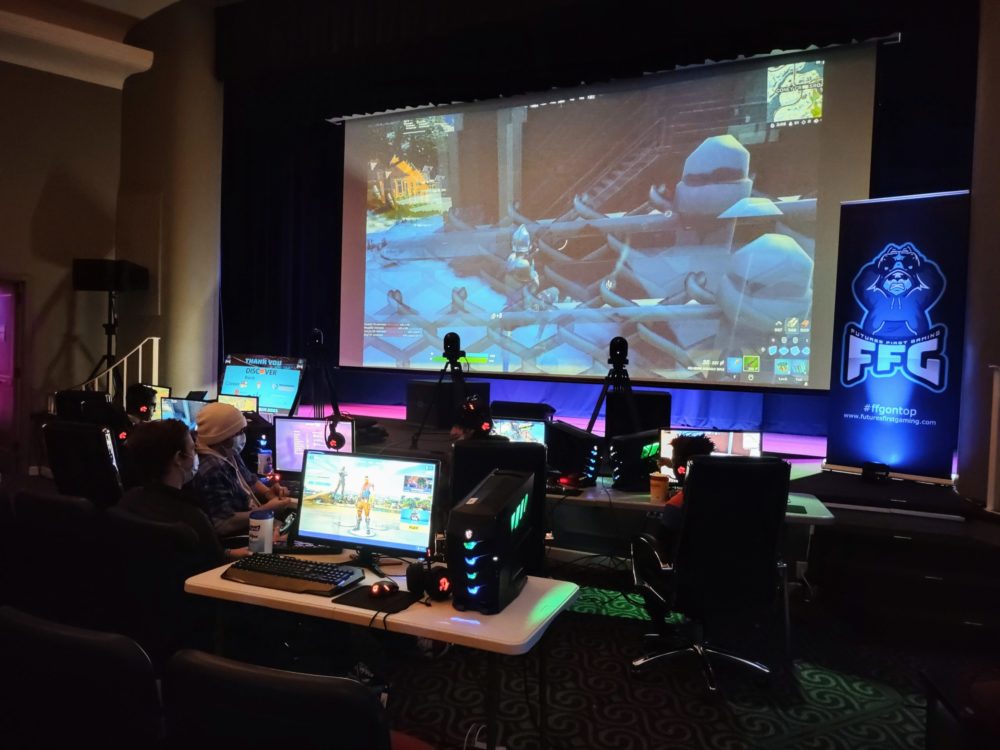Healthcare technology company Aidar Health is looking to grow in Baltimore after receiving regulatory approval in the U.S. and Europe for its handheld device that monitors vital signs.
The company received 510 (k) clearance from the U.S. Food and Drug Administration earlier this month for the device, called MouthLab. That means it is allowed to be marketed in the U.S. In February, it received CE Mark approval, which allows it to be sold in Europe. Regulatory clearance is a key milestone for companies working in healthcare. Along with allowing the device to be sold, CEO Sathya Elumalai said the approvals demonstrate that is safe and effective.
“We really wanted to focus on building the next best thing that came out of Baltimore, but also something that is safe and reliable from a device standpoint,” he said. “I really wanted to feel confident that I could give this device to my mom because she is the inspiration behind the company.”
Elumalai likens the device to the medical tricorder from Star Trek. A person breathes into the handheld device, and MouthLab has sensors to measure 10 different parameters including temperature and blood pressure, as well as key metrics for heart and lung activity. It is designed to be used at home, allowing for frequent monitoring. The company has a corresponding mobile app and analytics platform. For a user, it provides a snapshot of these metrics, with the traffic light system of red, yellow and green. It also helps physicians to monitor and analyze the data. Applying AI and machine learning can help to offer a warning sign about a deeper medical issue, or be the jumping off point for a behavior change.
Elumalai sees MouthLab as a daily monitoring tool. In the near-term, the company will market it for use during clinical trials. Another area is as a tool for telehealth visits, which have only increased in the pandemic: MouthLab could complement a telemedicine visit, offering a way to take vital signs and keep checking in beyond an appointment.
“It’s a huge magnifying glass that helps physicians to look at a patient’s health rapidly,” Elumalai said. “Telehealth will only be beneficial if physicians have the tools to look at somebody’s health. We provide rich objective data about somebody’s health every single day.”
Elumalai designed and developed the device along with Johns Hopkins biological engineering professor Dr. Gene Fridman, partnering with clinicians at Johns Hopkins Medicine. Under the previous name Multisensor Diagnostics and now Aidar Health, the company has pitched and picked up honors at events around the country.

When the pandemic arrived, the 10-person team hunkered down in Baltimore to complete work for the regulatory approvals. Being a medical device company, the team had to be onsite at its office in Fells Point to make progress on development. So they committed to safety measures that wouldn’t bring them in contact with others, and maintained a bubble. Elumalai said it extended a “family environment,” with two people driving others back and forth, and activities on weekends to break from work.
“We were all looking after each other,” he said.
Aidar Health was also helped in 2020 by receiving about $250,000 in funding from the National Science Foundation through a Small Business Innovation Research Phase 1 grant. That helped to build out the cloud-based platform that allows physicians to collect and monitor the data.
Now, the company is looking to grow in Baltimore. Elumalai is working with a manufacturing partner and setting out to raise funding. It is also hiring, seeking to tap the city’s engineering and creative talent across software, data, biomedical and marketing roles. Going forward, the company wants to move to a larger space where it can manufacture the devices.







